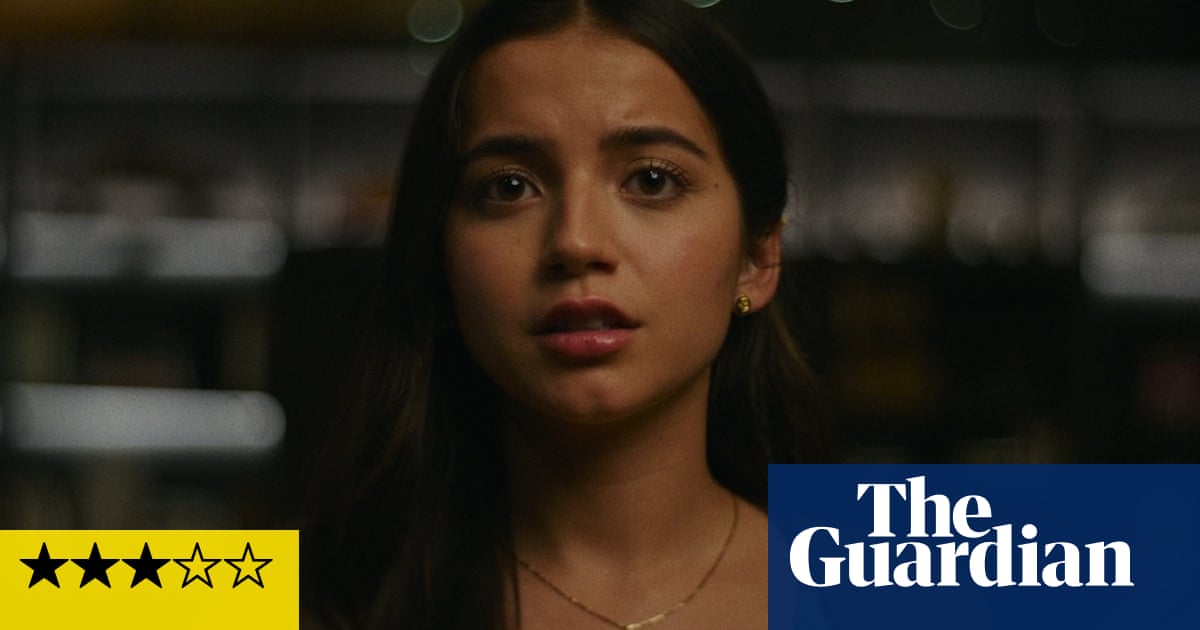
For better and for worse, John Green’s young adult worlds tend toward the dramatic and expansive – big swings, big emotions, big mysteries and dreams. And always, the specter of death – of parents, friends (Looking for Alaska, a manic pixie dream girl mystery turned Hulu series) or the protagonists themselves (the cancer romance turned tearjerker hit The Fault in Our Stars). Turtles All the Way Down, the writer’s 2017 novel, turns the drama more inward: its protagonist, a high-schooler named Aza Holmes, struggles with derailing thought spirals from obsessive compulsive disorder, partially inspired by the author’s own experience.
Such an alienating internal experience is the type of characterization that could be difficult to translate to screen, both for relatability and for the action – what to do with a romance when one half is too deathly afraid of bacteria to kiss? That the director Hannah Marks’s winsome film adaptation for Max invites us into Aza’s head from the jump, cued by jarring clicks and flashes of wriggly microscope slides, is a feat. Credit, too, to Isabela Merced, convincingly playing a midwestern teenage girl riven in two: the part who goes to Applebee’s and wants a boyfriend and dreams of attending Northwestern for lectures by her favorite psychology professor (Succession’s J Smith Cameron), and the part who constantly fears contracting a lethal infection of C diff bacteria.
The film, from a screenplay by Elizabeth Berger and Isaac Aptaker, likewise walks a fine line between standard adolescent caper and character study of mental illness, an unwieldy balance that, though occasionally generating sparks, never fully achieves equilibrium. The caper side has a ludicrous, half-hearted, though relatably undramatic plot in the sleepy suburbs of Indianapolis (filmed in Cincinnati, Ohio, a difference that will only be noticeable to people who know the Cincinnati skyline). Aza and her longtime best friend Daisy (Cree) discover that the white-collar criminal billionaire next door is missing, that there is a $100,000 reward for any information, and that his son is Aza’s childhood friend Davis (Felix Mallard), with whom she bonded at a summer camp for grieving children. (She lost her father, he lost his mom; someone’s parents had to die!)
That plot, involving Aza cozying up to a clearly smitten Davis while the exuberant, undaunted Daisy snoops, is quickly discarded, replaced by Aza’s increasingly intense thought spirals of microbial doom, narrated effectively in voiceover. Fractured by intrusive thoughts, Aza is, unsurprisingly, obsessed with theories of the self and prone to bouts of absurdist, dissociative thinking: if human bodies are mostly foreign microbes, who is in charge? What is real? She asks her psychiatrist Dr Singh (Poorna Jagannathan), the esteemed professor and her well-meaning but overburdened mother (Judy Reyes), unable to settle on an answer, or accept a fate of medication. (The fear that anti-anxiety meds will change the real “you” is one of the film’s most poignant, delicately handled insights.)
These digressions veer from broadly indicative of the vast existential crisis that is adolescence, to vacuous and back; at nearly two hours, this is a film that could stand to tighten up the meandering conversations on the overwhelming prospect of life. Still, Turtles All the Way Down, which takes its odd name from an allegory told by Smith’s professor, manages to bridge the vast and the daily minutiae of high school life with relative aplomb. It’s believably soundtracked to a high schooler’s indie rock genre mix on Spotify (LCD Soundsystem, Tame Impala, Billie Eilish’s Bad Guy). Aza’s well-worn, increasingly strained friendship with Daisy, in particular, recalls recent YA successes like Max’s Unpregnant and Hulu’s Plan B. And Marks has a commendable handle for romantic tension without physical or even in-person interaction, building Aza and Davis’s relationship primarily though flirtatious texts, albeit relayed in too-big font on the screen.
The successes are in large part owed to Merced’s sensitive, grounded performance, her open face able to pass amusement, anxiety, self-loathing vitriol, panic attack and relief like quicksand. Her performance alone can absorb the film’s rougher edges, vaguer lines and dramatic whiffs, especially when assisted by a strikingly natural Cree. She capably handles the self-destructive impulses and terror of Aza’s unraveling mental health through a downturn that is difficult to watch, without tipping into histrionics. Turtles All the Way Down, like other Green books before it, struggles to find a balance between relatable teenage angst and heightened vessel for emotions that feel bigger than life. In this adaptation, at least, things feel all too viscerally human.
-
Turtles All the Way Down is available on Max on 2 May in the US with a UK date to be announced
Source: theguardian.com





















